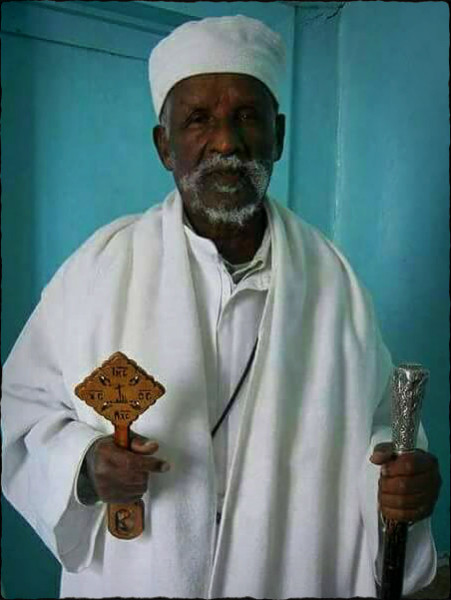
UN ‘failing’ Eritrea’s detained Christians

His Holiness Abune Antonios – Patriarch of the Eritrea
World Watch Monitor – 12/4/18
Patriarch Abune Antonios of Eritrea Detained Again
Eritrea’s human rights record was again in the spotlight at the UN Human Rights Council earlier this week. Kate Gilmore, Deputy High Commissioner for Human Rights, said in her opening remarks that over 100 people were arrested in Eritrea in 2017 for practising religions not officially recognised by the state.
A monitoring group for the UN, United Nations Watch, said “thousands” of Christians are also facing detention as “religious freedom continue[s] to be denied in Eritrea”. The group also asked why the report of the Special Rapporteur on the situation of human rights in Eritrea, Sheila B. Keetharuth, “failed to closely assess this situation”.
Christian Solidarity Worldwide, a religious freedom and human rights advocate, mentioned the arrest of dissidents and their family members and noted that the Commission of Inquiry had found that “Eritrea had committed crimes against humanity”.
The Special Rapporteur did highlight the detention this month of hundreds of perceived opponents, some as young as 13, following the death, in custody, of a 93-year-old school director who defied government orders, as Reuters reported.
Haji Musa Mohamednur was the director of a private Islamic school in the Eritrean capital, Asmara. The government orders that he disobeyed included a ban on the veil and stopping of religious teachings.
His arrest in October led to student protests on the streets of Asmara – a rare sight in the strictly governed East African nation.
The UN Human Rights Council heard that the Eritrean government’s claims of improvement in the human rights situation were unfounded.
Background
Eritrea is 6th on Open Doors International’s 2018 World Watch List of the 50 countries in which it is most difficult to live as a Christian.
In 2002, the government introduced a law prohibiting Christian practice outside of the Orthodox, Catholic and Evangelical Lutheran denominations, as well as Sunni Islam.
But even the sanctioned Catholic Church has faced issues because of its objection to its clergy being forced to become conscripts in the indefinite and compulsory military service imposed in Eritrea.
Dubbed the “North Korea of Africa”, the Eritrean regime is authoritarian and intolerant towards any form of unregistered organisation, dissent, or free expression. There is no safe place in the country – as is confirmed by the large number of Eritrean refugees in Europe and elsewhere.
Although there are no reliable statistics on religious affiliation in the country, sources estimatethat the country is half Christian and half Sunni Muslim.
Arrests of Christians escalated in 2017. A new wave of arrests that began in May saw the number of Evangelical Christian prisoners rise to more than 200. Evangelical and Pentecostal Christians are at particular risk, although the Eritrean Orthodox Patriarch, Abune Antonios, has been under house arrest since 2007 after he refused to comply with government attempts to interfere with church affairs.
In July the European Parliament passed a resolution condemning “systematic, widespread and gross human rights violations” in Eritrea. This followed a report by a UN commission that the country’s “crimes against humanity” should be investigated by the International Criminal Court.

883239 331534Thank you for sharing with us, I believe this web site genuinely stands out : D. 748797